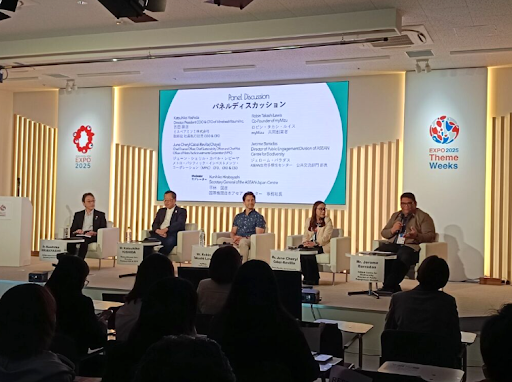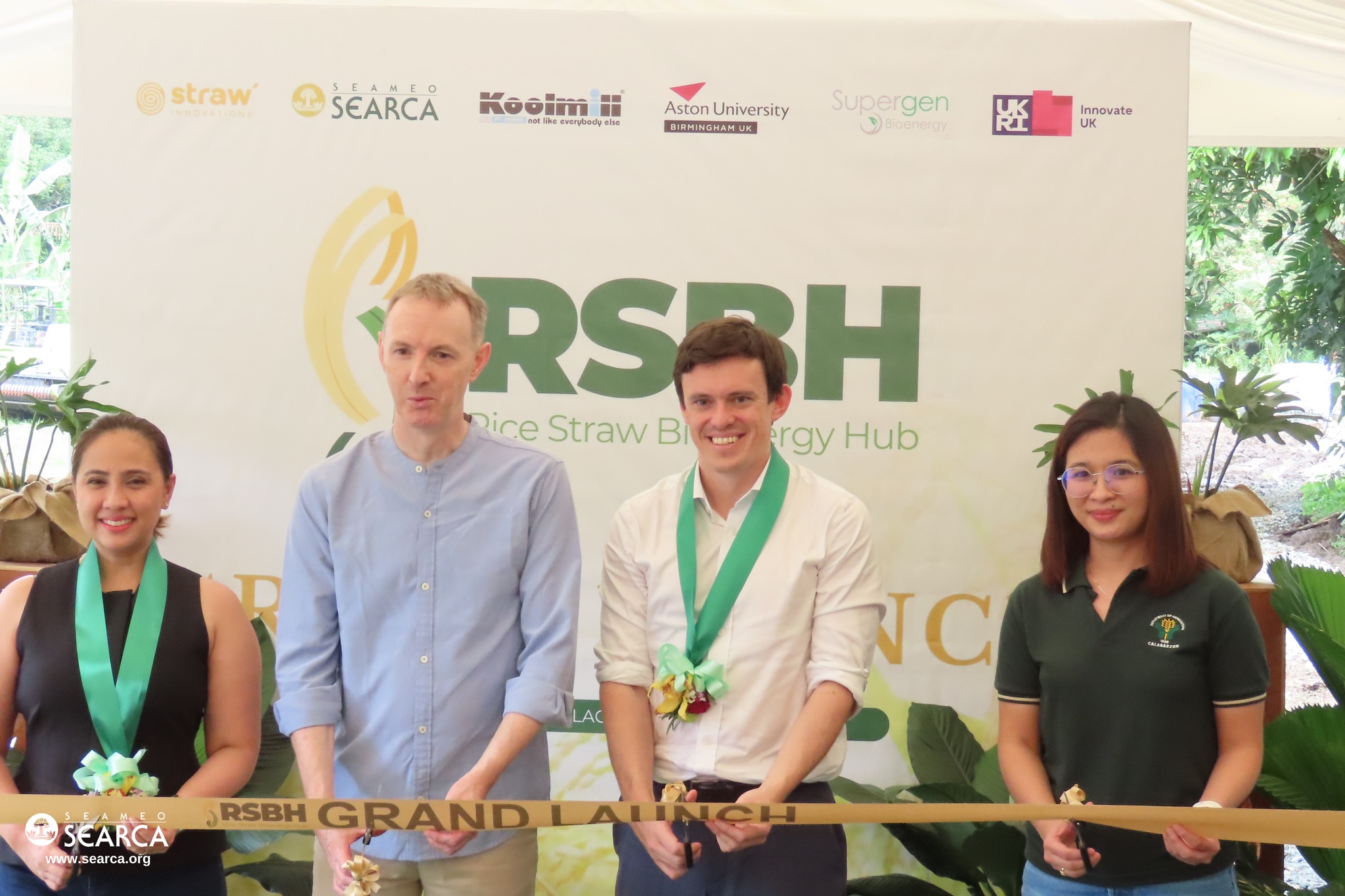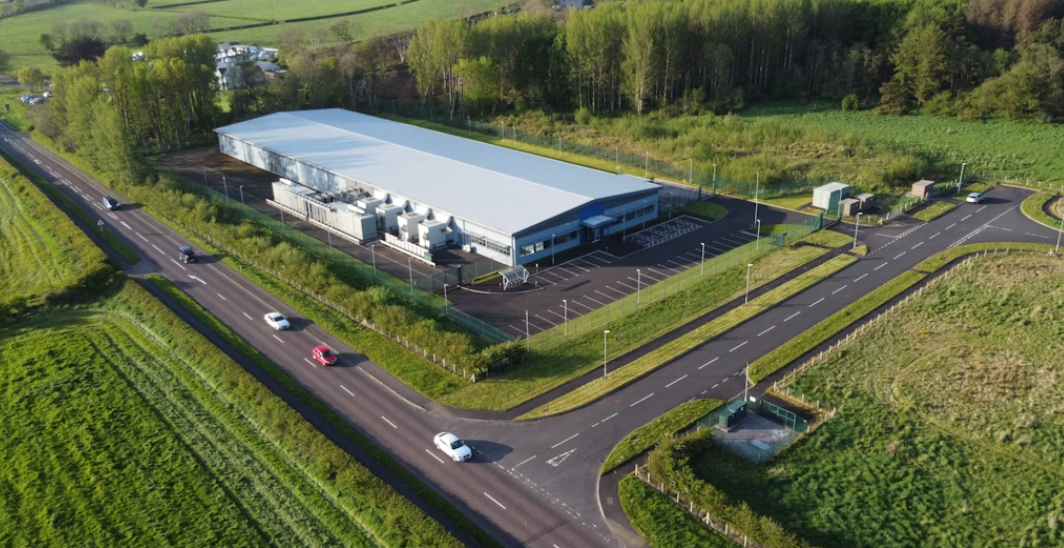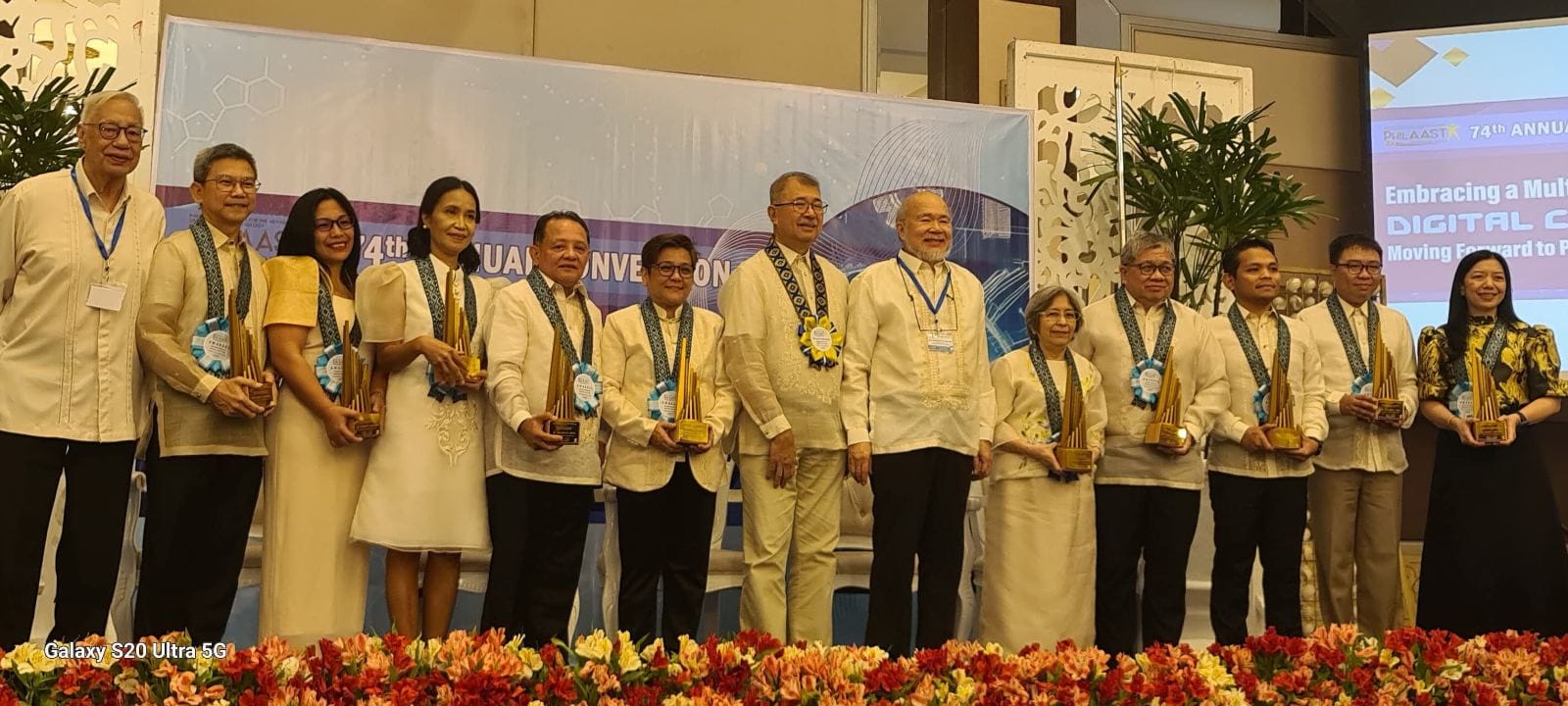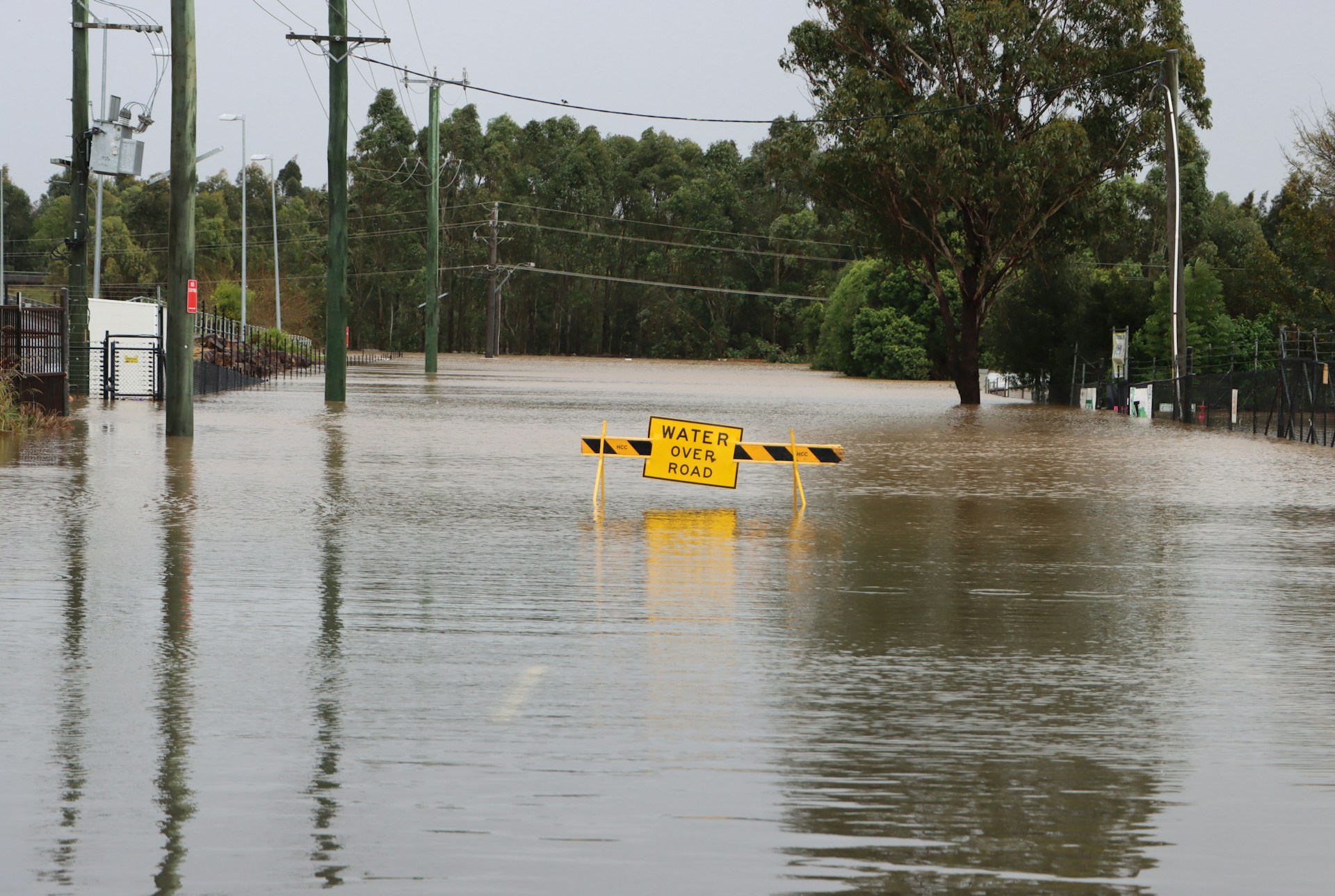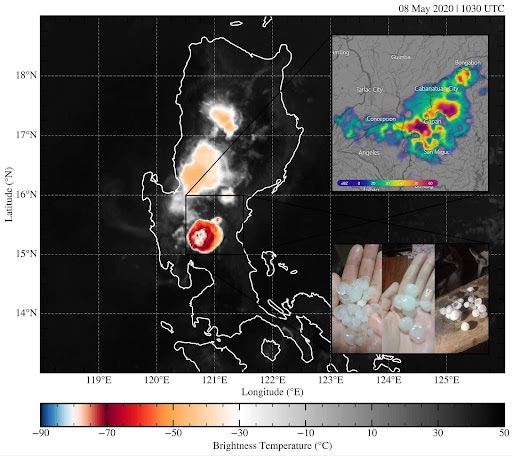ACB’s Public Engagement Division Director Jerome Barradas (far right) joins Minebea Mitsumi Director and President Katsuhiko Yoshida, Social Innovation Japan Co-Founder Robin Takashi Lewis, and Metro Pacific Investments Executive Vice President and Chief Sustainability Officer June Chery Cabal-Revilla in a panel moderated by ASEAN-Japan Centre Secretary General Kunihiko Hirabayashi at “The Future I Want to See: Smart, Sustainable and Inclusive Initiatives in ASEAN, Japan and Beyond”.
OSAKA, JAPAN [TAC] — The ASEAN Centre for Biodiversity (ACB) emphasized the importance of biodiversity in developing a smart, sustainable and inclusive future in a panel discussion alongside private sector representatives during a forum at the World Expo 2025 in Japan.
The forum was organized by the ASEAN Japan Centre (AJC) and the ASEAN Secretariat as part of “The Future of Community and Mobility Week”.
“Across our region, we are seeing a powerful convergence of green economy priorities, smart technologies, and a rising commitment to social inclusion,” said AJC Secretary General Dr. Kunihiko Hirabayashi.
“ASEAN’s Community Vision 2045 — places sustainability, resilience, and people-centered growth at the very core of its future”, he added.
ACB Public Engagement Division Director Jerome Barradas shared why a smart, sustainable and inclusive future is built upon balancing human needs with planetary health.
“This begins by recognizing how much we depend on the many ecosystem services we directly or indirectly benefit from. Biodiversity considerations must be integrated into national development plans, policies and practices and promote cross-sectoral engagements,” he emphasized.
The involvement of diverse stakeholders including Indigenous peoples, local communities and civil society organizations in conservation efforts and policy development is one of the fundamental principles of the Kunming Montreal Global Biodiversity Framework, a comprehensive roadmap for biodiversity conservation and sustainable use.
This principle is reflected in the ASEAN Biodiversity Plan, the regional biodiversity strategy and action plan that ensures synergy between global targets and the ASEAN vision.
“The ACB and the ASEAN Business Advisory Council forged a partnership called the ASEAN Business and Biodiversity Initiative (ABBI) to mainstream biodiversity in business operations, such as through the adoption of nature-based solutions,” Barradas added.
The ABBI provides an informal regional platform for sharing knowledge and information to enhance collaboration between business and biodiversity in the ASEAN region.
When asked about the challenges faced in aligning business interests with environmental protection, he shared that it remains challenging to capture the interests of businesses and the private sector and convince them that biodiversity is a viable investment.
Another panelists June Chery Cabal-Revilla, executive vice president of Metro Pacific Investments, explained that part of their company’s strategy to future-proof the organization is to integrate social and environmental stewardship into the business.
“We design, build and operate with the least social and environmental disruption,” Cabal-Revilla said.
She cited the construction of the Cebu-Cordova Link Expressway, the longest bridge in the Philippines, as an example of their company’s sustainability commitment. In addition to being engineered to withstand extreme natural events, it was intentionally designed to be longer to preserve and protect approximately 300 hectares of mangrove forests in the area. It also includes clearances and channels to allow local fishermen and their boats to access traditional fishing grounds, thus safeguarding their livelihoods.
The company is also investing in the transition to clean and renewable energy by harvesting solar power and biogas plants. Beyond environmental benefits, the project is expected to create jobs, stimulate economic growth and foster community development.
Secretary General Hirabayashi remarked that he had learned that real change always begins with people who care deeply and are ready to put ideas into action. He then challenged the audience to start with what moves them.
“If you care about clean water, food systems, education, biodiversity—whatever it is, start there. Talk to others. Build teams. Try something. Learn fast. Keep moving. And above all, remember: you don’t need permission to make a difference. You just need a purpose—and partners”, Hirabayashi said.

